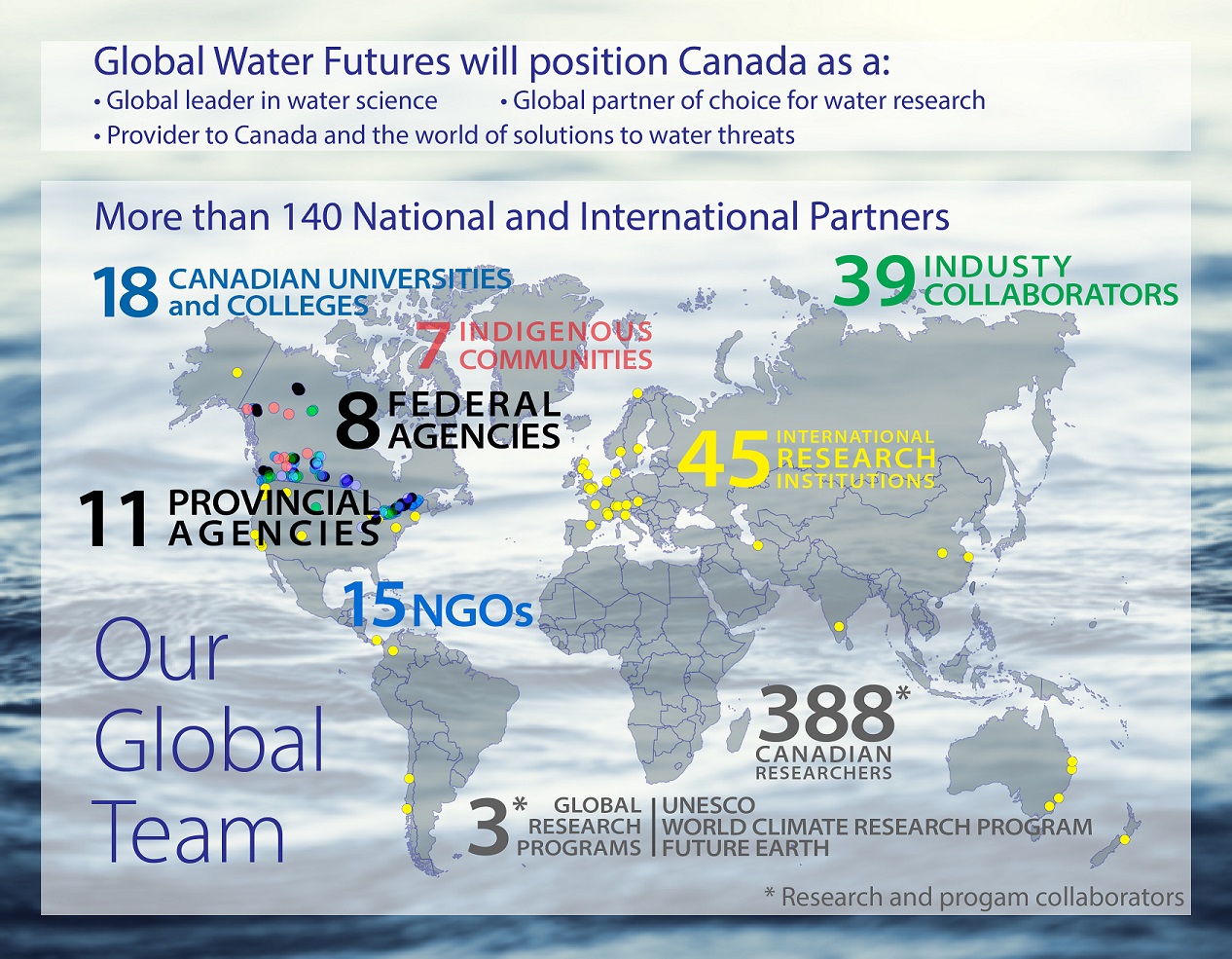
At-a-Glance – Global Water Futures
GWF will address the strategic needs of Canada’s water dependent economy in adapting to change and managing the risks of uncertain water futures and extreme events.
Solutions to water threats in an era of global change
How can we best forecast, prepare for and manage water futures in the face of dramatically increasing risks?
At least half the world’s population is dependent upon water from ‘cold regions’ where snow, ice and frozen soils drive water availability and quality. Cold regions are severely affected by climate change and human activity, resulting in dramatic rates of warming, changing water availability and unsustainable water use. Canada and much of the world are ill prepared for this unprecedented shift, which has already resulted in intensified floods and droughts, reduced water availability and degraded water quality, costing billions in economic loss and impacting the health of populations. Addressing how to protect communities against these extreme water threats and consequent health risks in the face of climate uncertainty and human-induced global changes is one of the world’s grand challenges.
The Global Water Futures (GWF) project is led-by the University of Saskatchewan with support from 156 partners from the federal and provincial governments, academia, industry, international institutions, non-governmental organizations, and indigenous communities. GWF is a 7-year $143.7 million project primarily funded by the Canada First Research Excellence Fund, the Province of Saskatchewan, four institutional partners (University of Saskatchewan, University of Waterloo, McMaster University, and Wilfrid Laurier University), and industries.
GWF will transform the way communities, government, and industry prepare for and manage water-related risks in an era of unprecedented change and establish Canada as a global leader in water science for cold regions where snow, ice and frozen soils are major controls on water supply and quality. GWF will address the strategic needs of Canada’s water dependent economy in adapting to change and managing the risks of uncertain water futures and extreme events.
